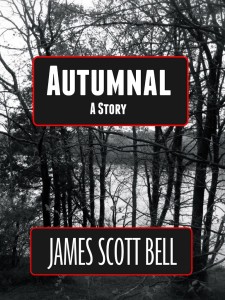by James Scott Bell
@jamesscottbell
“If you want to send a message, try Western Union.” – Samuel Goldwyn
Do you send a message in your fiction? Nothing wrong with that. You can’t read Atlas Shruggedor On The Road or To Kill A Mockingbird without picking up that the writers had something on their minds that drove them in the writing. And each of those books still sell tens of thousands of copies per year.
But good old Sam Goldwyn knew that if you get too didactic, the story suffers. You have to let the characters live and breathe and act like real people in response to the story elements. You don’t want to manipulate them so much that the reader thinks you’ve moved from storytelling to sermonizing.
Still, at the end of any book or story, an author will have left something for the reader to think about. It can’t be helped. That’s the nature of story.
Which bring us to Theme. Theme (or as I call it, Meaning) is the “big idea.” It is what emerges once the central conflict is resolved. The famous writing teacher William Foster-Harris believed that all great stories could be explained in a “moral formula,” the struggle between sets of values:
Value 1 vs. Value 2 => Outcome.
You plug in your values thus:
Love vs. Ambition => Love.
In other words, the value of love overcomes in the struggle against ambition. If one were writing a tragedy, the outcome would be the opposite, with ambition winning, but at the cost of lost love.
Writing teacher Lajos Egri posed a similar idea in The Art of Dramatic Writing. He called it the “Premise.” It is expressed in a moral formula as well, as in Justice overcomes deceit.
The question today, writer, is whether you are being intentional about your theme.
Not all writers know their theme when they start writing. They have characters and a plot idea, and they let the writing unfold as it will. They may not think about theme at all. They may simply write about characters involved in the struggle of the plot, knowing that struggle will eventually end. Most of the time that’s how I approach it in my own writing. But I do, at some point, identify what it is my emerging story is trying to say—because, of course, it’s really mein there somewhere.
But even writers who say they never think about theme end up saying something. It can’t be helped. All stories have meaning, whether the author is purposeful about it or not. Why? Because readers are wired for it. We are always looking for meaning, trying to make sense of the world. Indeed, one of the reasons we have storytellers is to help our fellow creatures through the mythical dark forest, otherwise known as life.
Perhaps, then, it would be wise to be a little more conscious of your theme. Whether you start out with one or find it along the way, try to identify the unifying message. Then you can go back in the revision process and weave symbols, metaphors and thematic dialogue into the tale.
It also helps to know your theme in case you get questions. I wrote a short story that stoked some controversy among a section of my reader base. I got a few emails, and one consternated face-to-face query, asking why I wrote such a disturbing and eerie tale.
I responded that I was actually trying to write a profoundly moral tale. One that had a very clear meaning (to me, at least). I shaped the plot precisely to be disturbing (think Twilight Zone or Alfred Hitchcock Presents) because the theme would not be as powerfully presented otherwise.
 I would be very interested in seeing if you find the meaning I intended. That’s why I’ve made the story, “Autumnal,” free on Kindle today through Wednesday. I’d love it if you got it, read it, and told me via Twitter what you think the meaning is. Use #Autumnal for the discussion.
I would be very interested in seeing if you find the meaning I intended. That’s why I’ve made the story, “Autumnal,” free on Kindle today through Wednesday. I’d love it if you got it, read it, and told me via Twitter what you think the meaning is. Use #Autumnal for the discussion. As for you, dear author, talk about this in the comments: Do you know what you want to say when you start a story? Are you a “theme-first” kind of writer? Or do you prefer to let the characters duke it out and leave it at that?
